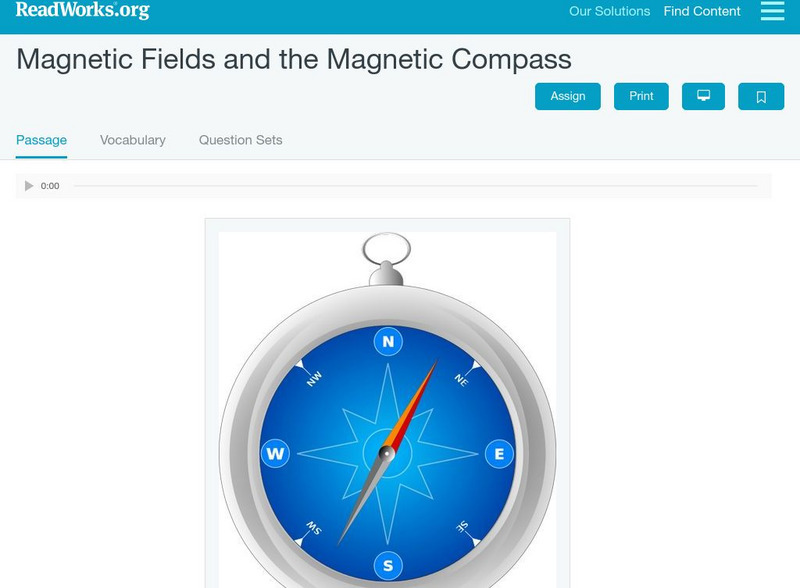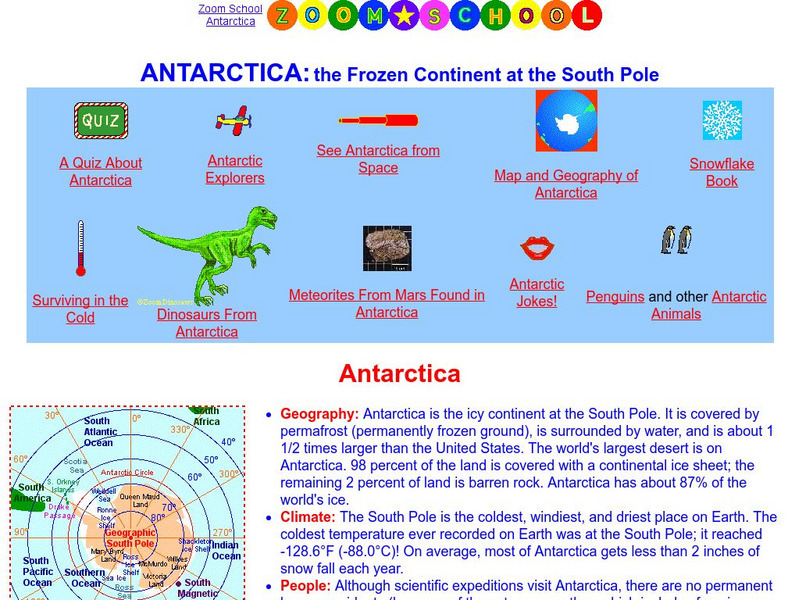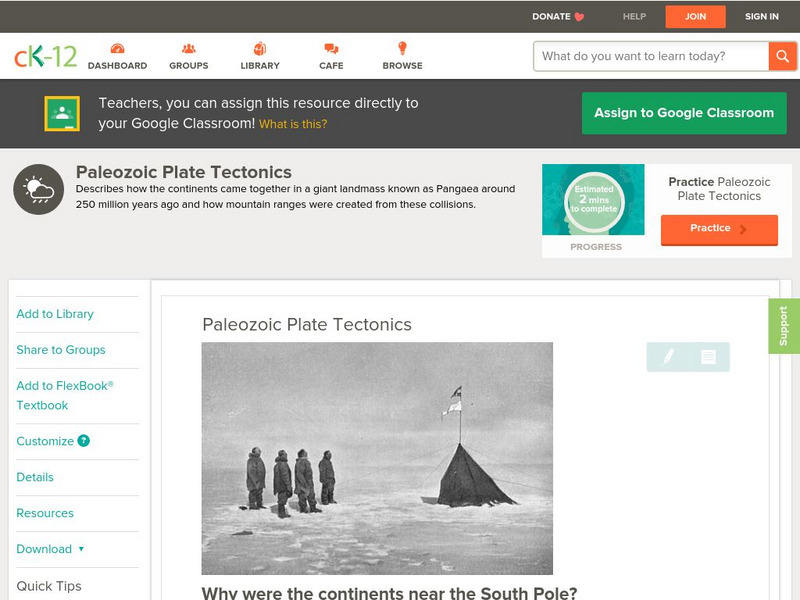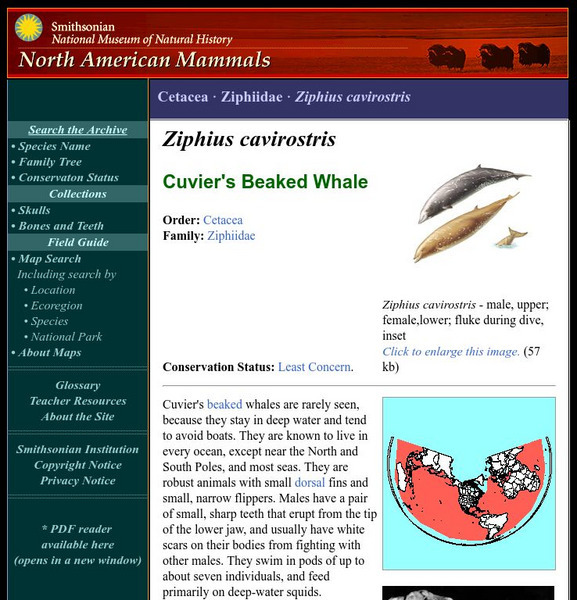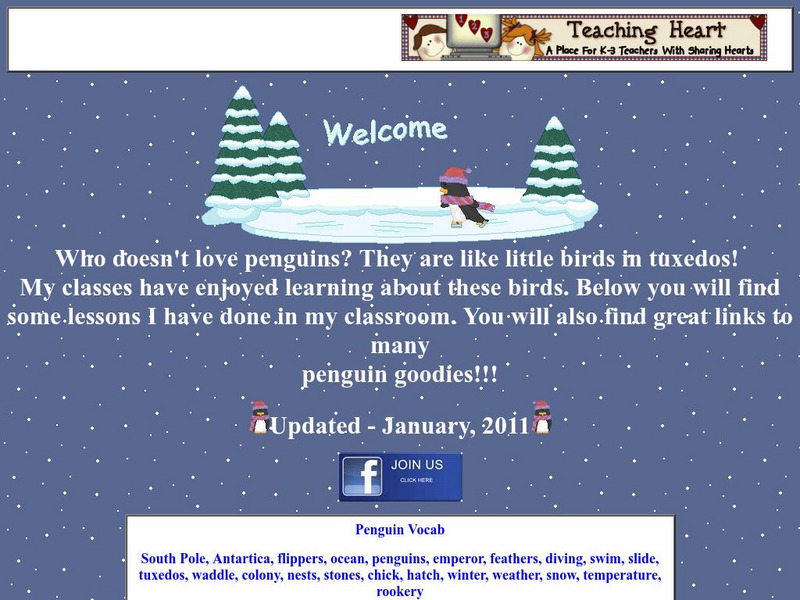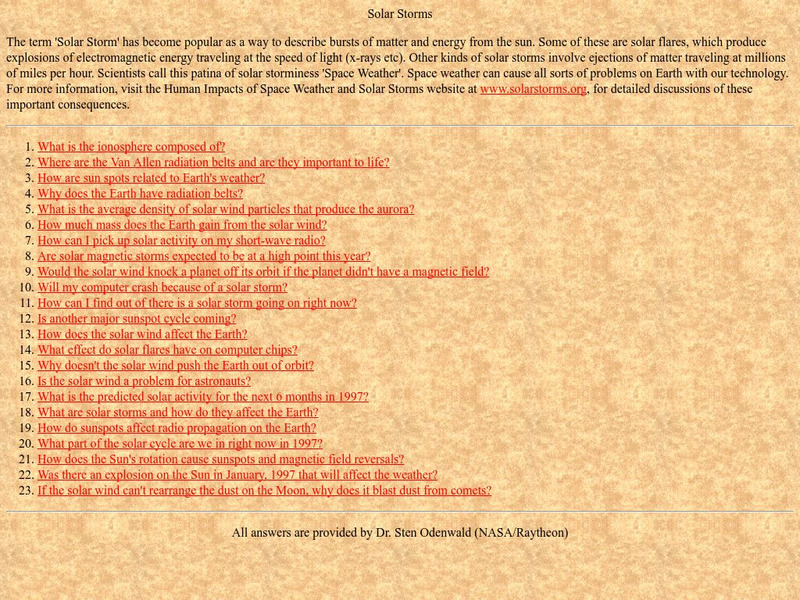Alabama Learning Exchange
Alex: How Do Magnets Work?
During this lesson students will examine magnets and determine that they have two poles (north and south). They will observe which poles attract and which poles repel.
Other
Magnet Man: Cool Experiments With Magnets
Here is a lengthy listing of activities and resources pertaining to magnets and magnetism. Experiments which can be performed with many different types of magnets are described; detailed directions and photos are provided.
World Wildlife Fund for Nature
Wwf: Our Earth: Ecoregions: Habitats: Polar Regions
A simple introduction and overview of the polar regions. Includes a link to information about animals that live in a polar habitat.
Read Works
Read Works: Electric and Magnetic Forces and the Modern Day Compass
[Free Registration/Login Required] An informational text about how a compass works using electromagnetic force. A question sheet is available to help students build skills in reading comprehension.
Read Works
Read Works: Ocean Animal Discovery
[Free Registration/Login Required] An informational text about the discovery of ocean animals. A question sheet is available to help students build skills in reading comprehension.
Enchanted Learning
Enchanted Learning: Zoom School: Antarctica
Learn some amazing facts about the coolest place on Earth, Antarctica. Explore a map and geography, science, animals, explorers, jokes, and more. Also contains a quiz to take.
CK-12 Foundation
Ck 12: Earth Science: Paleozoic Plate Tectonics
How plate tectonics formed Pangaea. [Free Registration/Login may be required to access all resource tools.]
Utah Education Network
Uen: Continents: Antarctica
Use these internet sites and complete the activities for each one to learn more about the second smallest and coldest continent.
Curated OER
Route of Cook's Second Voyage, July 13, 1772 July 29, 1775, South Pole
This page, and the one after it, have a collection of the earliest maps of Canada by all the best known explorers.
Ducksters
Ducksters: Explorers for Kids: Roald Amundsen
Kids learn about the biography and life of explorer Roald Amundsen. learn about the journey of the first man to the South Pole.
Smithsonian Institution
National Museum of Natural History: American Mammals: Cuvier's Beaked Whale
Cuvier's beaked whales are rarely seen because they stay in deep water and tend to avoid boats. They are known to live in every ocean, except near the North and South Poles, and most seas. Learn more about the Ziphius cavirostris, more...
ClassFlow
Class Flow: Magnets
[Free Registration/Login Required] This flipchart helps students differentiate between and identify objects that are attracted by a magnet and those that are not attracted by a magnet.
Other
Boat Safe Kids: Longitude and Latitude
This website starts at the very beginning and explains how round globes are transferred to flat maps. Then they explain the use of longitude and latitude.
Other
Teaching Heart: Penguins
Use this site if you want to find ideas, lessons and activities related to penguins.
Mocomi & Anibrain Digital Technologies
Mocomi: What Is Antarctic Circle?
Learn about the Antarctic Circle, where it is located, why it's important, and other interesting facts.
NASA
Nasa: Image Science Center: Ask the Space Scientist Earth
Site from NASA contains a collection of 91 questions pertaining to the Earth's atmosphere, magnetic field, ionosphere, rotation and origin of life.
Curated OER
Science Kids: Science Images: Aurora Borealis, Northern Lights
The aurora borealis (also known as the northern lights) is a spectacular light display that can be seen at night in regions near the North Pole (auroras can also be seen near the South Pole). Auroras occur because of charged particles...
Curated OER
Educational Technology Clearinghouse: Clip Art Etc: Roald Amundsen
(1872-1928) Norwegian explorer most famous for first reaching the North and South Poles.
Science and Mathematics Initiative for Learning Enhancement (SMILE)
Smile: About Magnets (Lesson Plan)
This site provides a lesson plan which includes a hands-on activity about magnetism and magnetic fields. Parts of the plan would be easily adaptable as a student project (for any grade level).
Curated OER
Etc: Maps Etc: Plan of the Movements at Concord, 1775
A plan of the Battle of Concord, Massachusetts, at the opening of the American Revolutionary War (April 19, 1775). Explanation of the Plan: (1) Lexington Road; (2) Hills and high land where the liberty pole stood; (3) center of the town,...
Curated OER
Robert Falcon Scott
This site provides a detailed biographical page about Robert Scott (1868-1912 CE), an Antarctic explorer, including pictures.
Curated OER
Robert Falcon Scott
This site provides a detailed biographical page about Robert Scott (1868-1912 CE), an Antarctic explorer, including pictures.
Curated OER
Robert Falcon Scott
This site provides a detailed biographical page about Robert Scott (1868-1912 CE), an Antarctic explorer, including pictures.
Curated OER
Robert Falcon Scott
This site provides a detailed biographical page about Robert Scott (1868-1912 CE), an Antarctic explorer, including pictures.
Other popular searches
- North Pole South Pole
- Penguins South Pole
- Emperor Penguins South Pole
- North and South Poles
- 90 South Pole
- South Pole Place Near
- Santa in South Pole
- North Pole, South Pole
- The South Pole
- Emperor Penginns South Pole
- North Ans South Poles
- North South Poles





